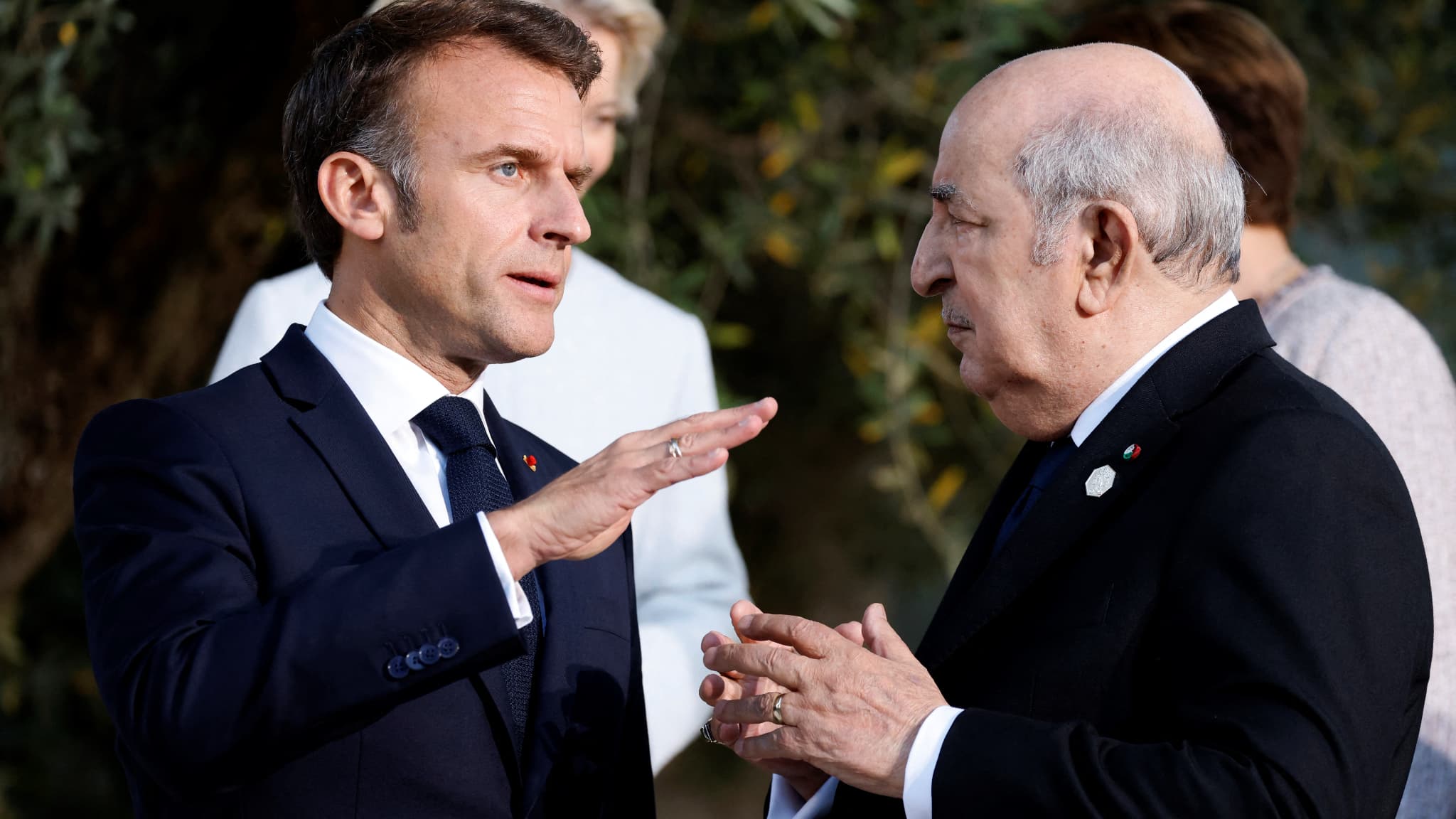Macron forces the Algerian regime to yield under diplomatic pressure

On April 1, 2025, Emmanuel Macron delivered a resounding diplomatic blow to the Algerian military regime, forcing the designated president Abdelmadjid Tebboune to yield on several key issues. In a deft maneuver, the French president not only demanded the immediate release of writer Boualem Sansal but also secured an agreement on migration cooperation, before imposing a decisive setback on the Sahara issue. The latter demand, perhaps the most significant, marks a turning point in France’s policy toward Algeria.
A brief communiqué from the Algerian presidency mentioned a phone call between the two heads of state, but the true stakes of this exchange are far more significant than what was disclosed. According to local sources and observers specializing in Franco-Algerian relations, Macron not only secured Sansal’s release, a vocal critic of the Algerian regime, but also forced the Algerian government to accept without reservations the return of irregular migrants expelled by France.
However, the most significant aspect of this agreement concerns the Sahara issue. Indeed, Paris reaffirmed its unwavering support for Morocco’s sovereignty over this disputed territory, a point that, according to Macron, cannot be challenged by any power, neither in Algeria nor in Tindouf. This stance strengthens Morocco’s legitimacy on the international stage and puts an end to any ambiguity in French policy on the matter.
This confrontation also highlights the growing weakness of the Algerian regime, which is increasingly isolated internationally. After its break with Morocco, Spain, and France, Algeria has seen its diplomatic pressure attempts, especially regarding migration and gas, fail. Algeria’s isolation has become an undeniable reality, and its bargaining power appears to be increasingly limited.
The release of Boualem Sansal, an emblematic figure of Algerian dissent, symbolizes this retreat of the military regime. Although the release of a single individual may seem modest, it actually reflects a deeper dynamic: the loss of the regime’s ability to maneuver in the face of external pressure. This concession, in the context of internal crisis, could mark the beginning of the end for an authoritarian power that has long dominated Algeria.
Finally, this new diplomatic phase allows Morocco to consolidate its position as the undisputed leader in the Maghreb. By recognizing Morocco’s sovereignty over the Sahara, France has definitively validated the Kingdom’s position, thus affirming Morocco’s centrality in the region and its strategic role both for Africa and for Europe. This shift in direction fits into a broader context where Morocco is gaining influence against a neighboring Algeria that is becoming increasingly weakened.